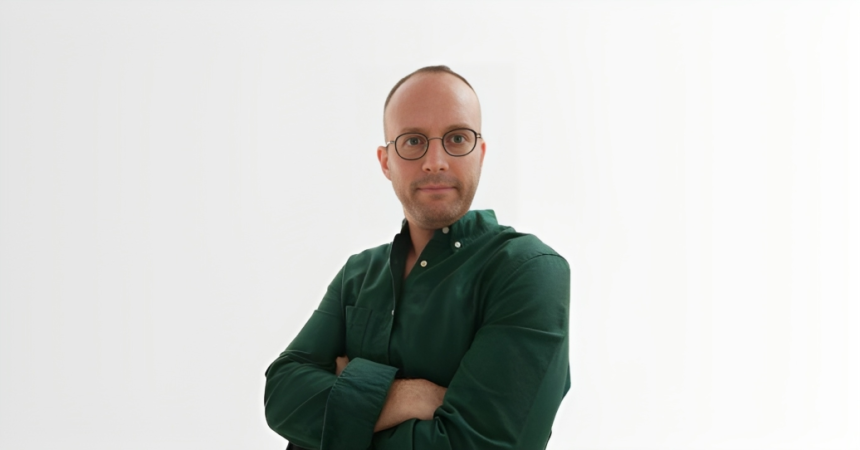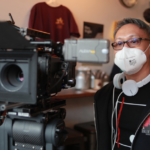As Israel faces challenging times, marked by ongoing conflicts, shifting global opinions, and the complexities of the Israeli-Palestinian issue, it is essential to hear the voices of those who staunchly support the nation. We’ve engaged with passionate pro-Israel supporters to gain insight into their perspectives on a wide range of topics surrounding the conflict and the broader issues it raises.
These voices offer valuable insights into the multifaceted challenges faced by Israel and provide a platform to express their ideas on how to address these issues. In this piece, we interview Ran Yosef, VP of Marketing at Glassix.
What are your thoughts on the press coverage and propaganda being circulated by the far left and pro-Palestinian groups during the ongoing conflict?
The media landscape is not only complex but also fraught with challenges when it comes to unbiased reporting. In many instances, major media outlets like the BBC and CNN have been criticized for one-sided narratives that do not fully capture the truth of the situation. A case in point is the recent incident at Al-Shifa hospital in Gaza, where initial reports from the BBC hastily blamed Israel for an explosion. It later emerged that the explosion was caused by Hamas. Such inaccuracies not only skew the public’s perception but also hinder Israel’s ability to present its side of the story. It is imperative for the integrity of journalism and the sake of informed public discourse that media sources commit to a balanced and factual representation of events, especially in the context of Israel’s security challenges and the historical complexities of the region.
How do you think leaders of Ivy League schools should respond or contribute to supporting Israel and promoting peace in the region?
It is deeply troubling that there seems to be a lack of condemnation from leaders regarding certain extremist chants, such as ‘From the river to the sea,’ or even worse, ‘Gas the Jews’ which are not representative of the collective US population. It’s worth noting that many of those participating in such chants may be on student visas, suggesting that their views might not reflect the broader American society. Furthermore, one must question the financial influences at play within these Ivy League institutions. Transparency regarding funding is crucial to understanding whether there is any financial support that inadvertently endorses radical ideologies. Lastly, there is a concern that university leaders may hesitate to speak out due to fears of escalating tensions. This is compounded by the observation that Jewish communities, by and large, do not respond with similar levels of aggression as seen in some of the Palestinian protests. It is essential for educational leaders to stand firmly against all forms of extremism and to foster an environment where dialogue and peace are the guiding principles.
Building a stronger and more self-sufficient Israel is a shared goal. What strategies or policies do you believe can help Israel become a powerful and influential nation like the United States?
Israel’s strength is multifaceted, deeply rooted in its capacity for innovation, the unity of its people, and the strategic alliances it forms on the global stage. To further bolster Israel’s position, there must be a concerted effort to invest in cutting-edge technology and defense, as well as to expand international trade. In parallel, it is crucial to cultivate a strong sense of national unity and resilience to navigate external challenges effectively.
Additionally, we must recognize the power of narrative and the role of public discourse in shaping Israel’s international image. It is imperative to invest heavily in public speaking and social media campaigns that articulate Israel’s story and values accurately and compellingly to the world.
Furthermore, I suggest that the Israeli government intensify its focus on the needs and wants of its civilians. This means maintaining open channels of communication with the public, demonstrating zero tolerance for any entities from within that support terror, and adopting a proactive stance in addressing the day-to-day needs of its citizens. By doing so, we not only strengthen our internal fabric but also present to the world a nation that is as compassionate as it is strong.
It’s an emotionally challenging time. How are you personally managing your mental health and coping with the stress brought on by the current situation in Israel?
During these challenging times, my approach to managing mental health is multifaceted. I channel my energy into ensuring that the narrative and facts about Israel are accurately represented, utilizing my LinkedIn platform to advocate for my beloved country. This not only serves a cause close to my heart but also provides a sense of purpose and direction.
To maintain mental clarity and physical health, I prioritize hiking. Being in nature is a powerful way to rejuvenate the mind and offers a respite from the intensity of current events. It’s a time when I can reflect and gain perspective amidst the natural beauty of Israel.
Family is my cornerstone, and I make it a priority to spend quality time with them. These moments are a source of comfort and strength, reminding me of what we are striving to protect and nurture.
Additionally, I am deeply committed to giving back to my community. I engage in volunteer work, supporting lone soldiers who have chosen to defend Israel without immediate family nearby. I also assist small businesses, recognizing that a thriving economy is built on the success of these enterprises.
In your opinion, what immediate steps should the Israeli government take to address the ongoing crisis and work towards a resolution?
Considering the recent atrocities, it is imperative that the Israeli government adopts a stance of transparency and open communication with its citizens. The public deserves the courtesy of being informed about the government’s efforts to secure the safe return of kidnapped civilians and the steps being taken to prevent horrific incidents like the one on October 7th from ever occurring again. The sheer brutality of that day, with acts that echo the darkest times in Jewish history, has deeply shaken our society.
The government must not only articulate its commitment to ensuring such a tragedy is never repeated but also take concrete actions to reinforce the safety and security of all Israelis. It’s crucial that the public feels a sense of involvement and confidence in the government’s actions. This means providing regular updates, being clear about the strategies being implemented, and showing an unwavering resolve to protect its people.
Moreover, the government should actively seek the input and participation of its citizens in shaping the policies that affect their future. In a time when the nation’s heart is heavy with grief, clarity and unity are more vital than ever. The bond between the government and its people must be fortified with trust and mutual determination to emerge stronger and more united in the face of such challenges.
To prevent future conflicts, what measures should Israel implement to ensure that similar incidents do not occur again?
To safeguard the future and prevent the recurrence of conflict, Israel must adopt a robust and unwavering stance in the protection of its citizens. While I am not an expert in military strategy or intelligence, it is clear that the government’s actions must be decisive and strong.
The tragic events of October 7th, where civilians were subjected to heinous acts of violence, underscore the urgent need for Israel to reassess its security measures. The involvement of not just Hamas but also civilians from Gaza, who breached Israeli territory, calls for a critical evaluation of defense protocols. The government must ensure that its defense forces are equipped to prevent such breaches and protect its citizens from any form of aggression. It’s imperative that the defense mechanisms in place are scrutinized and strengthened to deter any such future incidents and maintain the sovereignty and safety of Israel’s borders.
Building a united and cohesive society is vital. How do you believe Israel can bridge divides and foster unity between those with differing political perspectives, particularly the so-called left and right?
Indeed, the resilience of the Israeli nation is often most visible during times of adversity, where we witness a strengthening bond among its people. While complete unity in a country as politically diverse as Israel may be aspirational, the spirit of respect for one another’s views is the bedrock of a democratic society. It’s this respect that allows for a multitude of voices to coexist, even when they diverge on various issues.
It’s important to acknowledge the complexity within the Arab community in Israel as well. There are many Arab Israelis who are proud citizens, contributing positively to the nation’s fabric. However, it is also a reality that there are those who do not share this sentiment and instead support organizations that are in conflict with Israel’s right to exist peacefully. The government’s stance towards individuals who engage in activities that undermine the state’s security must be firm, and the rule of law must be applied consistently to safeguard the nation’s integrity. Ensuring that all citizens, regardless of background, are aligned with the country’s foundational principles of peace and security is essential for the continued prosperity and unity of Israel.
Educating Western civilization on the broader implications of radical Islam is crucial. What do you think should be done to convey that it’s not just an Israeli problem but an international issue? How can awareness be raised effectively?
An effective approach to educating the world about the broader implications of radical ideologies involves not just dialogue but also testimony from those who live the reality of coexistence. Arab Israelis or even better, Palestinians who managed to escape from Gaza and are now living peaceful lives in Israel, are a testament to the inclusive nature of Israeli society, enjoying equal rights and participating fully in the democratic process. By empowering these citizens to share their stories and experiences, Israel can debunk the myths of apartheid and highlight its democratic values.
We should establish and promote programs that enable Arab Israelis to become ambassadors of truth on the global stage. They can engage in forums, deliver speeches at conventions, and leverage their social media presence to narrate the authentic story of life in Israel. Their voices are powerful in illustrating the contrast between the freedoms they enjoy in Israel and the restrictions they would face in many other Middle Eastern states, particularly concerning women’s rights.
By showcasing the reality of Arab Israelis living with dignity and equality, we can challenge the misconceptions and demonstrate that the issue of radicalism is not an isolated problem but a global concern that requires a unified response. This initiative can also foster a greater understanding that Israel stands as a beacon of democracy in a region where such liberties are not always the norm.
Regrettably, Western perceptions are frequently shaped by media outlets with their own biases, such as BBC and CNN, which can skew the narrative. However, hearing firsthand accounts from Arab Israelis has the potential to cut through the noise and alter perspectives, offering a more nuanced and authentic understanding of Israel’s diverse and democratic society.
The role of social media has been significant in shaping public opinion. How can Israel effectively combat misinformation and disinformation on these platforms?
Israel’s approach to social media must evolve to meet the challenges of misinformation head-on. Recognizing the pivotal role of these platforms in influencing public opinion, I propose the establishment of a dedicated governmental role — a Social Media Minister within the Israeli Knesset. This minister would be responsible for orchestrating a strategic national social media campaign, managing budgets, and engaging with global influencers and celebrities to advocate for Israel’s narrative.
Moreover, this role would involve a proactive approach to digital diplomacy, not just in reactive measures but also in showcasing the day-to-day realities of life in Israel. By broadcasting live events, sharing stories of coexistence, and highlighting Israel’s democratic and innovative spirit, we can provide a counter-narrative to the often-one-sided stories presented in the media.
This initiative would not only combat misinformation but also serve as a bridge to understanding, allowing the international community to see Israel through an unfiltered lens. It’s about taking control of the narrative and ensuring that the truth about Israel’s society, culture, and values is communicated effectively and widely.
As an advocate for Israel, what key message would you like to convey to those who may be less informed about the situation in the region? How can you reach out effectively to raise awareness?
The core truth about the Israeli-Gaza situation is stark in its simplicity yet often obscured by layers of misinformation. As Israelis, we yearn for peace and mutual respect with our neighbors while facing groups whose stated aim is our destruction. This is a reality that we live with every day, and it’s a narrative that needs to be shared widely and clearly.
Each Israeli has a story that can shed light on the complexities and the human side of our region that is often overlooked. It is our collective responsibility to become ambassadors of truth and to use the tools at our disposal, especially social media, to convey the challenges we face. By doing so, we not only defend our homeland’s reputation but also educate the uninformed about the resilience and the pursuit of peace that defines us.
We must highlight the contrast between the aspirations of the Israeli people for peace and the aggression we face. It’s crucial to share personal accounts, factual reports, and the daily triumphs of coexistence that occur despite the hostility. In this way, we can reach out effectively to raise awareness and foster a better understanding of Israel’s commitment to a peaceful future for all.
How can the Jewish diaspora and Jewish communities around the world contribute to supporting Israel and promoting a peaceful resolution to the conflict?
The Jewish diaspora, with its global presence and influence, is uniquely positioned to bolster Israel’s standing in the world. By steadfastly advocating for Israel, educating their local and global communities about the realities of the conflict, and supporting initiatives that aim for a peaceful resolution, they can make a significant impact.
It is essential for Jewish communities worldwide to stand firm in their identity and convictions, never to diminish their presence or silence their voices due to external pressures or misconceptions. By proudly upholding their Jewish heritage and openly supporting Israel, they send a message of unity and strength that resonates far beyond their immediate surroundings.
Their unwavering stance and visible solidarity are vital in countering misinformation and in advocating for Israel’s right to peace and security. The diaspora’s engagement in political, educational, and social spheres can help ensure that the narrative surrounding Israel is fair and informed by truth, contributing to a more balanced understanding and, ultimately, to the pursuit of peace.
What do you believe is the most important message to convey to the world regarding Israel’s journey to peace and security amidst the ongoing challenges in the region?
Throughout history, Israel has faced adversaries, from ancient empires to modern threats, yet it has persevered. This resilience is not just a testament to our past but a beacon for our future. The current conflict, rooted in a blend of ideological extremism and territorial disputes, is but another chapter in our long narrative. Just as we overcame the Egyptians, the Greeks, and the tyranny of the Nazis, we stand firm against the forces that challenge us today.
The animosity we face from the Palestinian movement, though fraught with its own unique and painful complexities, is a challenge we approach with the same enduring spirit that has defined our people through the ages. It is a spirit characterized by hope, innovation, and an unwavering commitment to survival and sovereignty.
Our journey towards peace and security is paved with the lessons of history. We know that the path is not easy, and the current adversities we face are temporary. With the support of the global community and the indomitable will of the Israeli people, we will continue to strive for a future where peace is not just an aspiration but a reality for all who call this region home.




